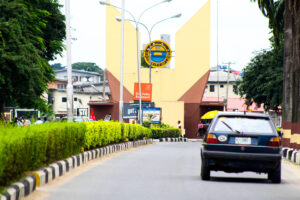
The iconic University of Lagos (UNILAG) has sent ripples through the educational landscape of Nigeria by announcing its intent to increase tuition fees for its student populace.
Setting the Scene
Contents
On a significant day, Thursday, July 20, 2023, within the esteemed walls of the Senate Committee Chamber of the university, Professor Folasade Ogunsola, the Vice Chancellor of UNILAG, delivered the news during a gathering with representatives of non-teaching staff unions.
Details of the Fee Hike
Previously, undergraduate students could expect a fee of about N20,000. The latest announcement, however, paints a different picture. Depending on their chosen course of study, undergraduates might now see this figure soar to more than N100,000.
To delve deeper:
- General undergraduate courses without the need for laboratory or studio access come with a price tag of N100,750.
- For courses that require lab or studio facilities, students will have to pay N140,250.
- Medical students, given the specialised nature of their studies, face the heftiest fee increase, with tuition set at N190,250.
This move coincides with a broader economic landscape where Nigerians are already grappling with the sting of inflation and surges in petrol prices after the discontinuation of the fuel subsidy.
Reactions from Within the University
Following the revelation, the Senior Staff Association of Nigerian Universities (SSANU) at UNILAG voiced its concerns, especially emphasising the potential financial strain on students and their guardians. Comrade Rasaki Yusuf, representing SSANU, put forward the proposal of a rebate for university staff members who have their wards enrolled at UNILAG.
However, Professor Ogunsola clarified that the fee structure, being determined at a national level, doesn’t offer flexibility for specific student demographics. But, in a bid to soften the impact, she did introduce the possibility of staggered payments for staff wards, under the condition that the full fee is settled a month prior to the concluding exams.
Looking at the Broader Picture: The State of Higher Education in Nigeria
The implications of this decision by UNILAG go beyond its gates. It brings to the forefront the topic of the affordability of higher education in Nigeria. With these climbing fees, students from less affluent backgrounds face uphill battles in their academic pursuits.
However, not all is gloom. There’s a ray of hope for students in the shape of legislative action. In June 2023, a beacon of relief emerged when President Bola Tinubu sanctioned the Student Loan Bill. The objective? To provide Nigerian students the ability to obtain interest-free loans from the government, making higher education more accessible. Having cleared its second reading at the House of Representatives on May 25, 2023, this bill stands as a testament to Nigeria’s commitment to easing the financial constraints on its student population.
The journey ahead for Nigeria’s education system is lined with challenges and opportunities. While universities like UNILAG grapple with their financial realities, the government’s initiatives indicate a drive towards ensuring that every aspiring student can dream of a bright academic future.
Be the first to comment